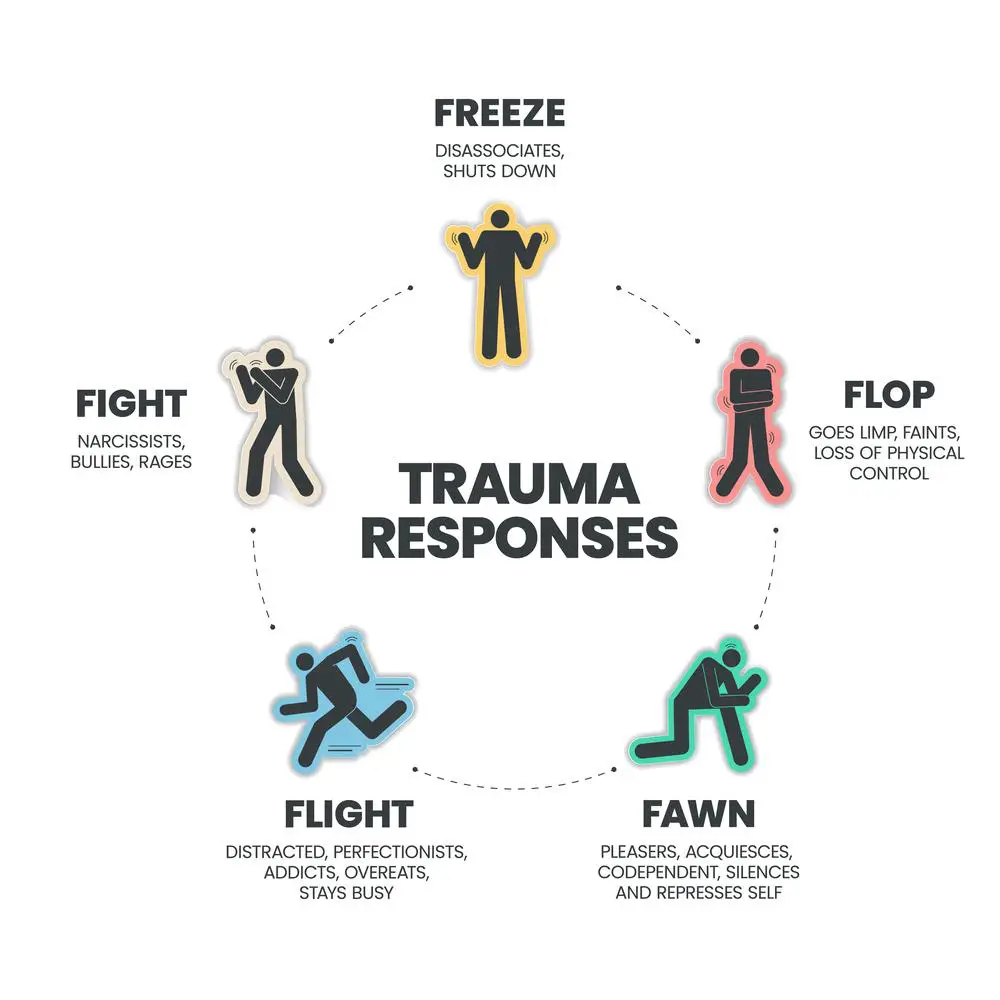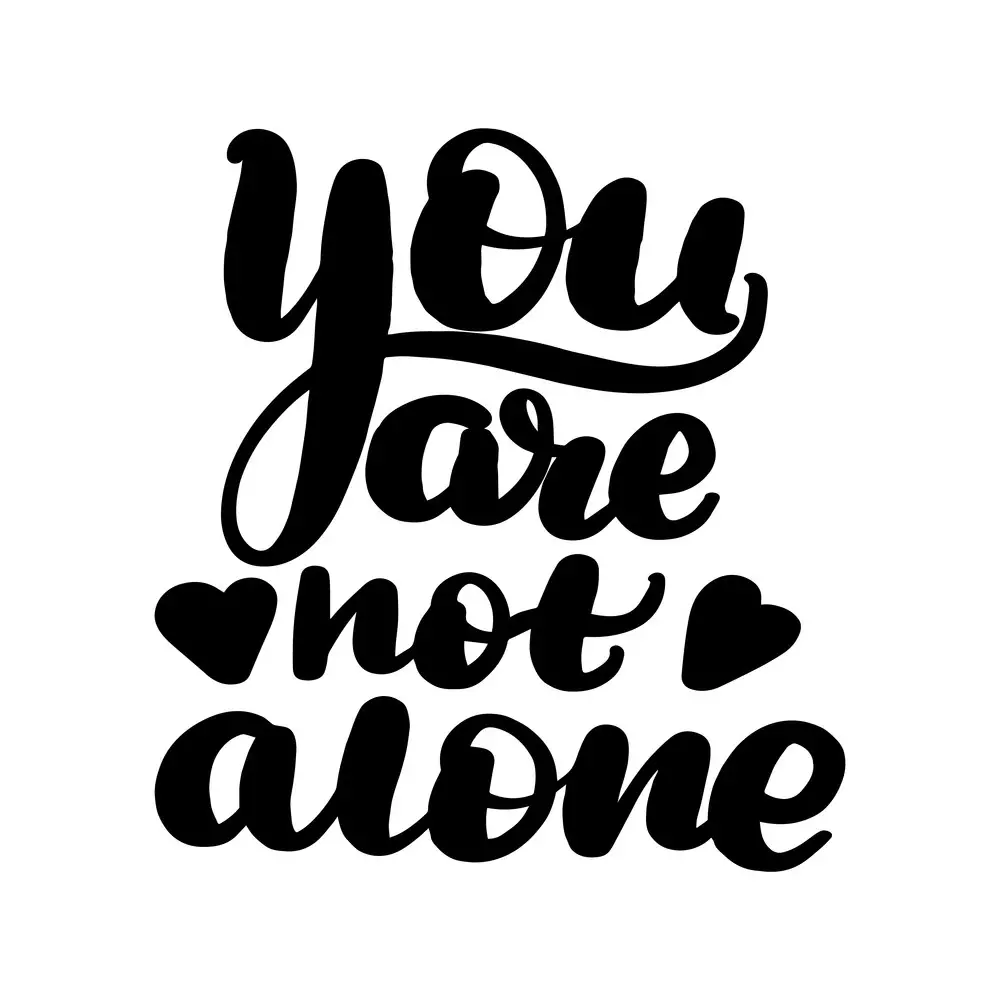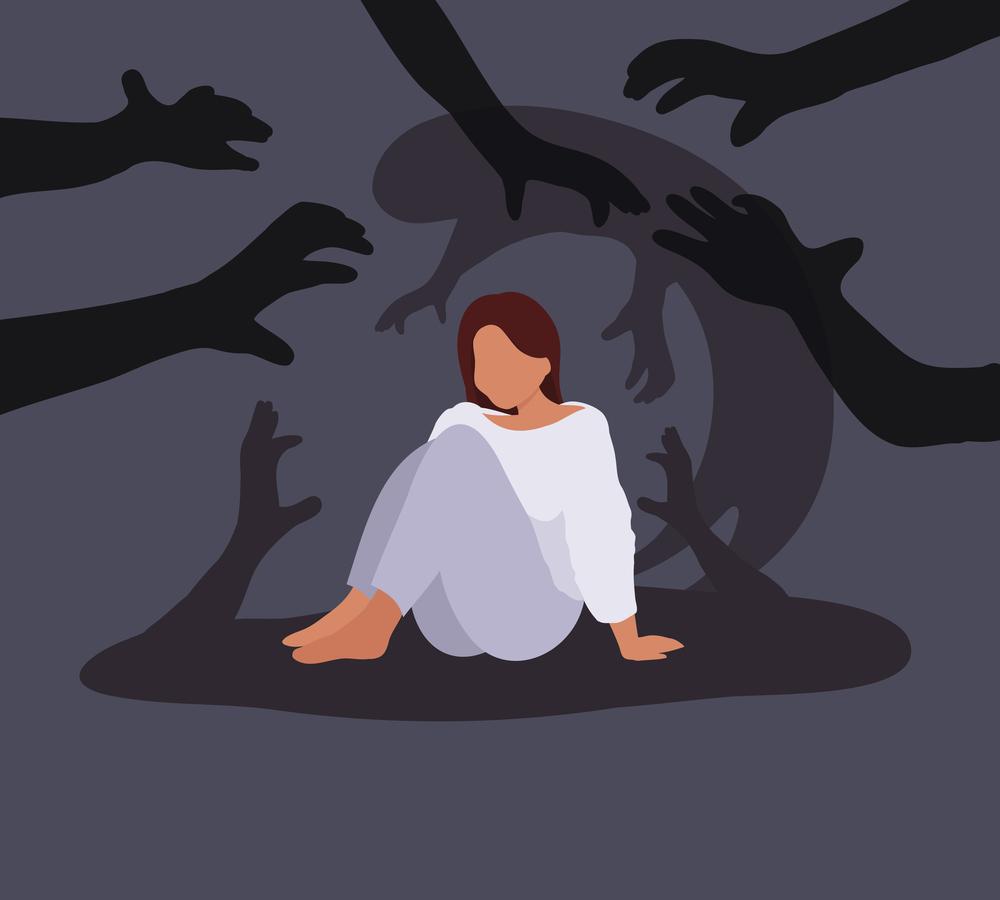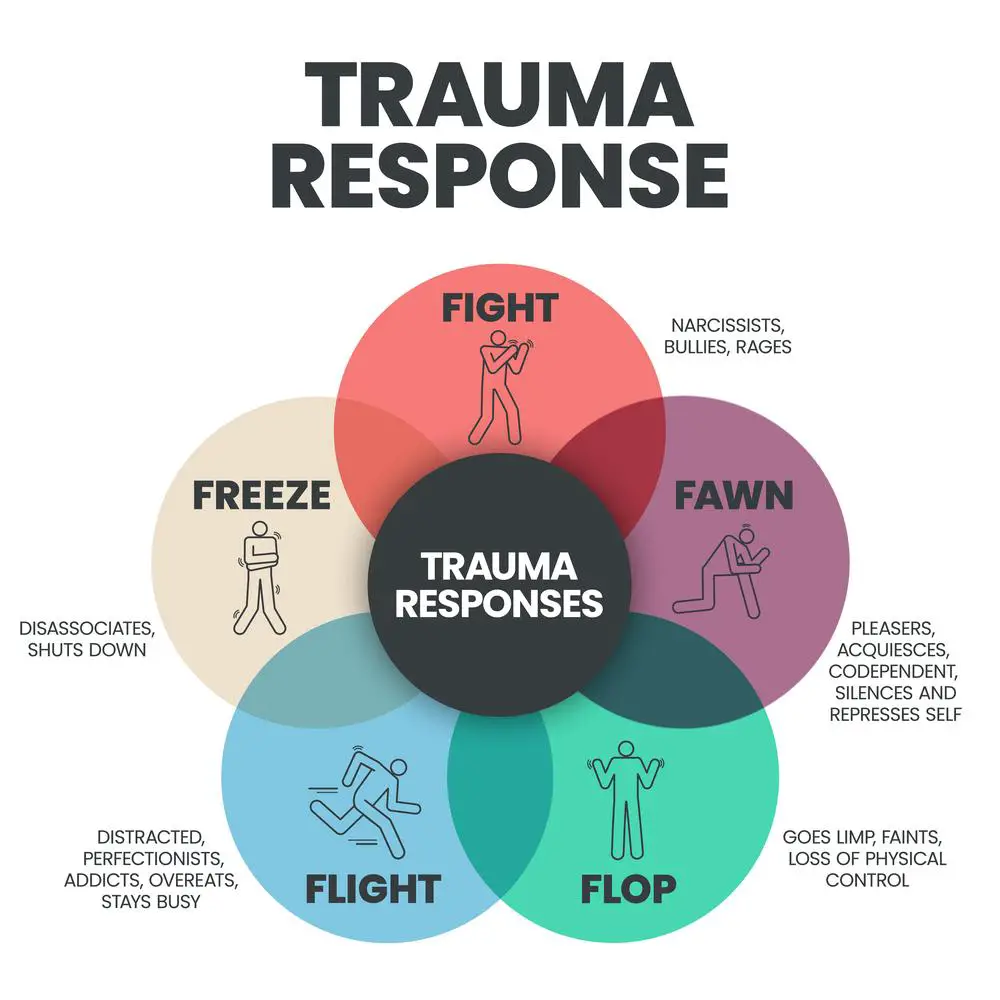Trauma response quizzes are designed to help individuals better understand their reactions to traumatic events, ultimately offering insight into their coping mechanisms. Individuals can begin to work on healing and recovery by identifying common trauma responses. It’s essential to keep in mind that everyone’s experience of trauma is different, which means reactions can vary widely.
Understanding trauma responses is crucial in addressing the emotional and psychological impact of traumatic experiences. These quizzes are not intended to replace consultation with healthcare professionals but to serve as a starting point for self-assessment and increased self-awareness. Furthermore, they act as a vital tool to initiate discussions with mental health professionals and loved ones to create a tailored plan for recovery and support.
Key Takeaways
- Trauma response quizzes provide valuable insight into how individuals cope with traumatic situations.
- Identifying and understanding trauma responses helps initiate discussions with mental health professionals and loved ones.
- These quizzes should serve as a starting point for self-assessment, not as a replacement for professional help.
Understanding Trauma

Trauma is an emotional response to a deeply distressing or disturbing event that overwhelms a person’s ability to cope. It can result from various situations, including life-threatening events, natural disasters, losing a loved one, and even childhood experiences.
Childhood trauma can have lingering effects on a person’s mental health throughout their life. Adverse childhood experiences (ACEs) involve events such as abuse, neglect, or witnessing violence. These experiences can have long-term consequences on your emotional well-being and your ability to handle future traumatic events.
Traumatic events affect each person differently. Some individuals may rebound quickly and move on from a distressing event, while others may require more time and support to heal. Your unique level of resilience influences how you respond to trauma, with factors such as your personal history, support system, and coping skills playing a role.
Understanding the various trauma responses is essential as you navigate through the healing process. Typically, there are four main trauma responses: fight, flight, freeze, and fawn.
- Fight: Confronting a threat head-on, believing that safety can be reached by overpowering the source of danger.
- Flight: Fleeing the situation is often considered the best option if the fight response is not feasible.
- Freeze: The body’s natural reaction when neither fight nor flight seems viable, causing an individual to essentially “shut down” in the face of danger.
- Fawn: Appeasing or trying to please the source of danger to create safety.
Identifying your trauma response can help you better understand your reactions to distressing events and guide you in seeking appropriate coping strategies. A trauma response quiz may help you determine how you typically react during such situations. Remember that a quiz may not be 100% accurate, but it can be a helpful tool in establishing a baseline for self-awareness and promoting healing.
Key Takeaway: Trauma affects individuals differently and triggers various responses. Recognizing your trauma response can help you navigate the healing process and seek appropriate coping strategies.
The Impact of Trauma
 Trauma can affect your life in many different ways, especially when it comes to your mental health. Understanding how it impacts you can help support your mental health and well-being. Here, we’ll discuss the various aspects of trauma, focusing on stress, PTSD, symptoms, and mental health.
Trauma can affect your life in many different ways, especially when it comes to your mental health. Understanding how it impacts you can help support your mental health and well-being. Here, we’ll discuss the various aspects of trauma, focusing on stress, PTSD, symptoms, and mental health.
Having experienced a traumatic event can often lead to intense stress. Your body and mind might feel overwhelmed, making concentrating or carrying out your daily tasks hard. Too much stress can cause:
- Anxiety or constant worrying
- Fatigue or difficulty sleeping
- Irritability or negative mood swings
- Physical symptoms like headaches or stomachaches
Moreover, you may develop a more severe condition called Post Traumatic Stress Disorder (PTSD). PTSD can occur after you’ve experienced a terrifying, life-threatening, or uncontrollable event. Common symptoms of PTSD include:
- Intrusive memories lead to flashbacks and nightmares
- Emotional numbness or difficulty forming close relationships
- Outbursts of anger, aggression, or hostile behavior
- Persistent feelings of guilt, shame, or self-blame
Aside from PTSD, trauma can manifest in other emotional or behavioral symptoms. Don’t be too hard on yourself if you experience:
- Sadness or depressive thoughts
- Lack of motivation or desire to engage with others
- Difficulty trusting others or feeling safe
- Substance abuse or self-harming behaviors to cope
Taking care of your mental health is crucial when dealing with the impact of trauma. It’s essential to seek professional help like a therapist or counselor to help you understand and process your emotions. Additionally, you can:
- Reach out to friends and family for support
- Join support groups or engage in activities that promote wellbeing
- Practice stress-reduction techniques such as mindfulness, meditation, or deep breathing
- Prioritize self-care like a healthy diet, exercise, and getting enough sleep
Remember, it’s normal to feel overwhelmed after experiencing a traumatic event. By understanding the impact of trauma on your mental health, you can take the proper steps to heal and regain balance in your life.
Modes of Trauma Response
 Everyone reacts differently to traumatic experiences, and people often display varying trauma responses. In this section, I’ll briefly discuss the four most common modes of trauma response: fight, flight, freeze, and fawn. Knowing these responses can help you better understand your reactions or those of others who have experienced trauma.
Everyone reacts differently to traumatic experiences, and people often display varying trauma responses. In this section, I’ll briefly discuss the four most common modes of trauma response: fight, flight, freeze, and fawn. Knowing these responses can help you better understand your reactions or those of others who have experienced trauma.
Fight: This trauma response involves confronting a threat directly. When you choose to fight, you believe you can overpower the source of danger and reach safety. People with solid fight responses are often assertive, courageous, and have firm boundaries.
Flight: If fighting isn’t an option or seems too risky, you might turn to the flight response. In this mode, you attempt to escape the danger by running away. Flight responses can manifest in various ways, including physically fleeing from a situation or mentally distancing oneself from the traumatic experience.
Freeze: Sometimes, neither fighting nor fleeing seems like viable options. In these cases, you might experience the freeze response, where your mind and body stand a standstill in the face of danger. This trauma response can make you feel numb, disconnected, or mentally “stuck” during or after a traumatic event.
Fawn: Although not commonly discussed, the fawn response involves people-pleasing behaviors that arise when someone tries to avoid potential harm by appeasing others. If you have a fawn response, you might prioritize others’ needs over your own or become overly accommodating to protect yourself from further trauma.
It’s important to note that trauma responses may not always be clear-cut or easily identifiable. You might cycle between these different responses or even exhibit multiple modes simultaneously. Recognizing these trauma response patterns can be crucial in fostering self-awareness and finding healthy coping mechanisms.
Key takeaway: Understanding the different modes of trauma response – fight, flight, freeze, and fawn – can help you recognize your patterns and work towards finding effective coping strategies.
Assessing Trauma Response
Taking a trauma response quiz can be helpful as a screening tool; however, it should not be considered a diagnostic tool. It’s designed to help you understand your reactions to trauma and how you might cope with stressful situations. Remember, this quiz is not a substitute for professional support, but it can guide you in the right direction if you are experiencing hardships.
The quiz typically presents you with a series of statements that touch on potential trauma responses. You’ll need to decide how each statement resonates with you by selecting the following options: strongly agree, agree, neutral, disagree, or strongly disagree. Keep in mind that there is no right or wrong answer; the goal is to help you identify and acknowledge possible patterns in your reactions to trauma.
For instance, a trauma response quiz might present the following statements:
- I tend to withdraw myself in tense situations
- I often feel the urge to escape when confronted with difficulties
- I have a hard time setting boundaries in my relationships
Remember that some questions might be difficult or triggering as you progress through the quiz. You must remain honest and listen to your emotions throughout the process. Remember, this is a self-reflection tool and not a clinical evaluation. Additionally, don’t put undue pressure on yourself to achieve a specific score or outcome.
By the end of the quiz, you’ll likely have some insight into your potential trauma responses and coping mechanisms. Use this knowledge to inform your growth and seek professional assistance if needed. Remember, it’s okay to ask for help, and overcoming trauma is a journey—you’re not alone.

Understanding Your Journey: A Self-Assessment Quiz on Trauma Response
Trauma can impact our lives in various ways, often in manners we don’t readily recognize. This self-assessment quiz is designed to help you reflect on your experiences and reactions. It’s a step towards understanding yourself better in the context of trauma. Remember, this quiz is for self-reflection and is not a substitute for professional advice.
Trauma Response Self-Assessment Quiz
- Recognizing Triggers:
- Do certain situations, sounds, or visuals evoke strong emotional reactions that seem disproportionate to the event?
- Can you identify any specific triggers that consistently result in discomfort or distress?
- Physical Responses:
- Do you experience physical symptoms like sweating, racing heart, or nausea in response to stress or memories?
- How often do these physical reactions occur, and are they linked to specific thoughts or events?
- Emotional Well-being:
- Do you often feel overwhelming emotions such as sadness, anger, or fear without a clear cause?
- Are there moments when you feel emotionally numb or detached from your surroundings?
- Coping Mechanisms:
- What strategies do you use to cope with stress or emotional pain? (e.g., exercise, isolation, substance use)
- Do these coping mechanisms provide relief, or do they contribute to further distress?
- Interpersonal Relationships:
- How do your trauma responses affect your relationships with friends, family, or colleagues?
- Do you find it challenging to trust others or form close relationships?
- Daily Functioning:
- Has your response to trauma impacted your daily activities, such as work, study, or hobbies?
- Are there tasks or responsibilities you avoid due to fear, anxiety, or other emotional responses?
- Self-Perception:
- How has your experience with trauma influenced your self-esteem and self-image?
- Do you often feel guilty, ashamed, or responsible for events beyond your control?
- Seeking Support:
- Have you considered seeking professional help to manage your trauma responses?
- What barriers, if any, prevent you from accessing support?
Reflecting on Your Answers:
- This quiz is a starting point to consider how trauma may affect your life.
- If your responses to these questions cause concern, consider contacting a mental health professional for a more thorough assessment and support.
- Remember, healing from trauma is a personal journey, and seeking help is a sign of strength, not weakness.
The Influence of Trauma on Relationships
 Experiencing trauma can significantly impact your relationships in various ways. It’s essential to recognize the different ways this may occur so you can better address and manage any issues that may arise. Understanding these effects can help you create healthier connections and support your partner or loved ones.
Experiencing trauma can significantly impact your relationships in various ways. It’s essential to recognize the different ways this may occur so you can better address and manage any issues that may arise. Understanding these effects can help you create healthier connections and support your partner or loved ones.
Trauma often leads to more conflict in relationships, as it may leave you feeling irritable and short-tempered. It’s natural for you to struggle with emotional regulation and perceive even harmless situations as potential threats. To overcome this, practice mindfulness and communication techniques to help you stay grounded and express your feelings more effectively.
Aggression can be another byproduct of trauma. On occasions, you might find yourself acting aggressively toward your loved ones, even when it’s uncharacteristic of you. This may cause strained connections, sometimes even leading to the end of relationships. If you notice this pattern, consider seeking professional help or exploring coping strategies to manage aggression.
Unfortunately, trauma may also contribute to the formation of codependent relationships, wherein partners become overly reliant on each other for emotional, physical, or financial support. This may lead to an unhealthy dynamic that’s hard to break. To avoid this trap, encourage open communication, set healthy boundaries, and practice self-care to become more self-sufficient.
Lastly, there’s the risk of falling into abusive relationships post-trauma, as you may struggle with recognizing red flags or be drawn to controlling partners due to your past experiences. It’s crucial to educate yourself about the signs of abuse and cultivate a support system that can help you identify and leave any toxic situations.
Remember, developing and maintaining healthy relationships after trauma may take time and effort. The key is to remain aware of how your experiences may affect your connections and seek professional help when necessary.
The Influence of Trauma on Work and Hobbies
 Trauma, including work, hobbies, and responsibilities, can significantly impact your life. When the lingering effects of a traumatic experience interfere with your daily duties, it’s essential to understand the challenges and work towards overcoming them.
Trauma, including work, hobbies, and responsibilities, can significantly impact your life. When the lingering effects of a traumatic experience interfere with your daily duties, it’s essential to understand the challenges and work towards overcoming them.
Experiencing trauma might make it difficult for you to maintain focus and attention on your work and hobbies. It’s not uncommon to feel distracted or find yourself procrastinating more often than before. The mental and emotional aftermath of trauma might make it harder for you to concentrate, leading to a dip in your productivity. Some consequences of trauma affecting your work life may include:
- Struggling with time management
- Facing challenges in decision-making
- Having difficulty collaborating with teammates
Similarly, in the realm of hobbies, you might encounter obstacles that hinder your progress and enthusiasm. You may face:
- Decreased motivation and interest
- Avoiding activities that used to bring joy
- Difficulty in learning and mastering new skills
It’s essential to acknowledge the influences of trauma and explore strategies to help manage them effectively. Some strategies to consider may include:
- Setting realistic goals and breaking them down into smaller tasks
- Taking regular breaks and practicing self-care techniques
- Seeking support from colleagues, friends, or a therapist
Remember, the road to recovery may not be linear, and you must be patient with yourself as you navigate the challenges. By acknowledging the impact of trauma, exploring support options, and employing helpful strategies, you can work towards overcoming these hurdles and restoring balance in your work and hobbies.
Signs of Trauma Responses
 When encountering trauma, people can respond in various ways. Here are some common signs to look out for if you think you or someone you know is experiencing a trauma response:
When encountering trauma, people can respond in various ways. Here are some common signs to look out for if you think you or someone you know is experiencing a trauma response:
- Avoiding conflicts: You might notice yourself or others going out of their way to avoid conflicts, tense situations, or confrontations. This can be a sign of trying to stay away from triggers that remind one of the traumatic event.
- Shutting down: During a trauma response, some people may shut down and stop engaging with others or their surroundings. It’s as if they are withdrawing into themselves to escape the overwhelming feelings and memories related to the traumatic experience.
- Dissociating: Dissociation is a mechanism your brain uses to protect you from the pain of traumatic memories. When dissociating, you might feel disconnected from your environment, body, and emotions. It’s like watching yourself from a distance or losing track of time.
- Emotionally numb: It’s not uncommon to feel emotionally numb or detached as a result of trauma. Emotions may be shut off to help you cope with the intense feelings or sensations that are too overwhelming to handle.
- Excessive daydreaming: People who have experienced trauma might find themselves daydreaming or losing focus quickly. This could be a way for them to escape their reality and the distressing memories mentally.
- Mind going blank: Your mind may go blank in response to triggers or reminders of the traumatic event. This can manifest as sudden forgetfulness, lack of focus, or difficulty remembering important details.
Understanding these common signs of trauma responses can help you recognize when you or someone you care about might be struggling. Remember, finding support from a mental health professional, friends, or family can be a crucial step towards healing and recovery.
The Role of Mental Health Professionals
 Mental health professionals play a crucial role in the diagnosis, treatment, and support of individuals who have experienced trauma. They’re equipped with the knowledge and skills needed to assess and evaluate the effects of traumatic events that may have long-lasting impacts on a person’s mental and emotional well-being.
Mental health professionals play a crucial role in the diagnosis, treatment, and support of individuals who have experienced trauma. They’re equipped with the knowledge and skills needed to assess and evaluate the effects of traumatic events that may have long-lasting impacts on a person’s mental and emotional well-being.
As you work with a mental health professional, they’ll carefully consider your unique experience and use their expertise to identify any potential trauma-related disorders that might be present. Through a thorough assessment, they can better understand your needs and develop an appropriate treatment plan.
In the treatment phase, your mental health professional will likely use evidence-based therapies to help you effectively cope with the after-effects of trauma. These treatments might include psychotherapy, cognitive-behavioral therapy, or other forms of therapeutic intervention. These approaches can be tailored to your needs, offering a personalized strategy for managing your challenges.
In addition to treatment, support from mental health professionals is vital in the healing process. They can provide you with the necessary guidance, encouragement, and resources to overcome obstacles and make progress in your recovery. This support can come in various forms, such as individual therapy sessions, group therapy, or connecting you with a support network of individuals who share similar experiences.
Remember that finding the right mental health professional to help with your trauma response is essential. Take the time to research and choose a professional who specializes in trauma and PTSD to ensure that you receive the best possible care and support for your unique situation. And don’t forget, your mental health professional will be your ally throughout your journey, ensuring you have the tools and strategies needed to heal and grow.
Trauma, PTSD and Other Conditions
 When you experience a traumatic event, it can cause a variety of mental health conditions, such as post-traumatic stress disorder (PTSD), anxiety, and depression. Understanding these conditions and how they might affect your daily life is essential.
When you experience a traumatic event, it can cause a variety of mental health conditions, such as post-traumatic stress disorder (PTSD), anxiety, and depression. Understanding these conditions and how they might affect your daily life is essential.
Post-traumatic stress disorder (PTSD) is a mental health condition that may occur after witnessing or experiencing a traumatic incident. Some common symptoms include memory loss, nightmares, flashbacks, feelings of helplessness, emotional detachment, irritability, and feelings of guilt or shame. PTSD is often associated with behavioral symptoms such as withdrawing from friends and family, angry outbursts, and substance abuse.
Anxiety can be another aftereffect of trauma. It’s a feeling of unease or nervousness about what might happen. Anxiety often manifests as excessive worrying, restlessness, difficulty concentrating, and sleep disturbances. It can also lead to physical symptoms like rapid heartbeat, shortness of breath, trembling, and nausea.
Depression is a prevalent mental health condition that can be triggered by trauma. It is characterized by persistent sadness, hopelessness, and a lack of interest in activities you once enjoyed. People experiencing depression may also face difficulty sleeping, changes in appetite, fatigue, and thoughts of self-harm or suicide.
Seeking help from a mental health professional is crucial if you’re struggling with any of these conditions. They can provide support, guidance, and treatment options tailored to your needs. Remember, it’s crucial to prioritize your mental health, and taking that first step to seek help can lead to a better quality of life.
Addressing and Overcoming Trauma Responses

When you experience trauma, it’s important to acknowledge and confront your fear. Don’t try to avoid it. Recognize that feeling afraid after a traumatic experience is normal. Being mindful of your emotions will help you comprehend and work through them.
To become more courageous and assertive, you need to establish firm boundaries. This can be achieved by clearly communicating what you’re comfortable with and what crosses the line and unapologetically safeguarding your mental and emotional well-being.
- Know your limits and assert them calmly and consistently.
- Surround yourself with people who respect your boundaries.
- When faced with challenging situations, remind yourself that you can control your reactions.
Developing a compassionate approach towards yourself and others is crucial in overcoming trauma responses. Showing empathy for your feelings and forgiving yourself can foster emotional healing.
Some tips to cultivate compassion include:
- Practice self-compassion exercises.
- Engage in regular self-care activities.
- Offer help and support to others in need.
A commitment to your personal growth and healing will aid in addressing trauma responses effectively. Therapy, support groups, and self-help resources can be valuable tools in this process.
- Regularly attend therapy sessions or support group meetings.
- Set specific goals for personal development and track your progress.
- Devote time to self-care and healing activities that resonate with you.
Remember, it’s essential to face your trauma responses with persistence and patience. It takes time to relearn old patterns and behaviors, but with consistent practice and determination, you can strengthen your emotional resilience and regain control of your life.

Embracing Healing: Knowing When to Seek Therapy and How to Maximize Its Benefits
Understanding when to seek professional help and how to make the most of therapy is crucial in your healing journey. Let’s explore the indicators that therapy might be beneficial, along with tips to enhance your therapeutic experience.
Recognizing the Need for Therapy: Sure Signs
- Overwhelming Emotions:
- Feeling consistently overwhelmed by emotions like sadness, anxiety, or anger that interfere with daily life.
- Changes in Behavior:
- Noticing significant changes in eating, sleeping, or socializing patterns that are not typical for you.
- Trauma Impact:
- Experiencing intrusive thoughts, flashbacks, or nightmares related to traumatic events.
- Relationship Struggles:
- Facing ongoing difficulties in forming or maintaining healthy relationships.
- Coping Mechanisms:
- Relying increasingly on unhealthy coping strategies, such as substance abuse or self-harm.
Tips for Making the Most of Therapy
- Set Clear Goals:
- Work with your therapist to set clear, achievable goals for your therapy journey.
- Be Open and Honest:
- Share your thoughts and feelings openly. Honesty is key to effective therapy.
- Do the Work Outside Sessions:
- Apply the strategies and techniques discussed in therapy to your daily life.
- Keep Consistent:
- Attend sessions regularly and respect the therapy schedule to maintain progress.
- Communicate with Your Therapist:
- Provide feedback about what’s working and what isn’t, so your therapist can tailor the approach to your needs.
 Setting and Recognizing Goals in Therapy
Setting and Recognizing Goals in Therapy
- Short-Term Goals:
- These might include managing daily stressors, improving sleep, or developing healthier coping mechanisms.
- Long-Term Goals:
- Such as understanding and processing past trauma, improving self-esteem, or building healthier relationships.

Recognizing Progress in Therapy
- Improved Emotional Regulation:
- Noticing that you’re better able to manage and express your emotions.
- Behavioral Changes:
- Observing positive changes in your behavior and daily routines.
- Enhanced Coping Skills:
- Developing and utilizing healthier coping strategies during stressful times.
- Increased Self-Awareness:
- Gaining a deeper understanding of your thoughts, feelings, and behaviors.
- Strengthened Relationships:
- Improving relationships with family, friends, and colleagues.
Frequently Asked Questions

How does your body react in fearful situations?
When faced with fear, your body undergoes several physiological changes, such as increased heart rate, shallow breathing, and tense muscles. These reactions prepare your body for quick action in response to danger – known as the “fight or flight” response. Your palms may also become sweaty, and your pupils may dilate to see better in the face of a potential threat.
In what ways has a past relationship affected your reactions?
Past relationships might have significantly shaped how you react to situations and interact with others. Patterns of behavior developed through these relationships, mainly if they were toxic or abusive, can become ingrained and impact your future interactions. For instance, you could be overly sensitive to criticism or have trust issues based on past experiences.
Which response do you most relate to: fight, flight, or freeze?
Probably, you instinctively lean towards one of the three primary trauma responses. The fight response involves confronting a threat, whereas the flight response means escaping the situation. On the other hand, the freeze response entails becoming paralyzed in the face of danger. Reflect on your previous stressful situations to determine which response you most often exhibit.
Can you identify moments when you exhibit fawn behavior?
Fawn behavior can manifest in various ways, such as being excessively compliant or people-pleasing to avoid conflict. This trauma response often develops as a coping mechanism in situations where fight, flight, or freeze may not be effective. Knowing when you might be exhibiting fawn behavior is crucial to address and manage it healthily.
How has your childhood impacted your current emotional responses?
Childhood plays a crucial role in shaping your emotional responses, as your early experiences and environment contribute to building your emotional regulation skills and coping mechanisms. Early trauma, neglect, or exposure to abusive relationships might lead to maladaptive emotional responses in adulthood. Understanding how your childhood has affected you can contribute to your healing and growth process.
What are the 6 F’s of trauma response that resonate most with you?
In addition to the well-known trauma responses of fight, flight, and freeze, there are three more: fawn, flop, and friend. Each person has a unique combination of these responses depending on their experiences and temperament. Take time to reflect on which of these 6 F’s resonate most with you, as understanding your personal trauma response can be an essential step towards recovery.
- Stress Relieving Benefits of Spending Time in a Garden: Interesting Facts to Know - February 16, 2024
- How to Reduce Anxiety Immediately: Quick and Effective Techniques - February 15, 2024
- Can Stress Cause Bloating? Understanding The Link Between Stress And Digestive Issues - February 15, 2024
This site contains affiliate links to products. We will receive a commission for purchases made through these links.




